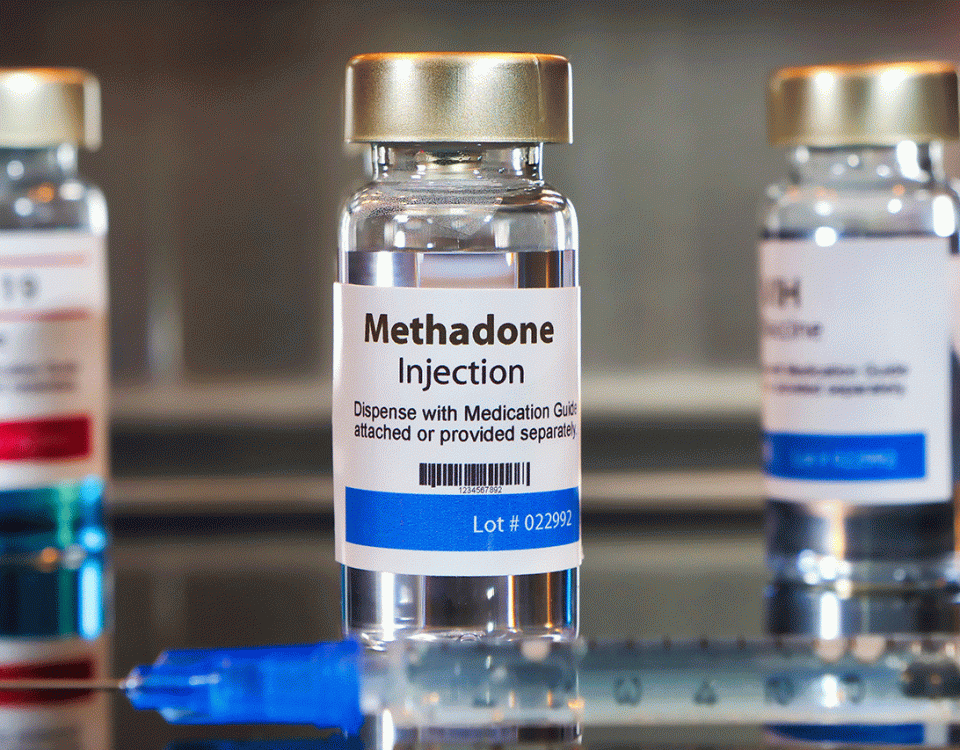Most people associate memory loss with a traumatic head injury or Alzheimer's Disease.
However, among the many side effects of substance abuse is memory loss. Regular use of recreational drugs like marijuana, opioids, ecstasy, and cocaine can lead to memory loss or lapses in memory that may or may not be reversible. As drug use continues to be a common problem in our society, more efforts are being made to discover what drugs cause dementia-like symptoms and other memory-related problems. As a drug rehab in Florida, we’ve done our own research, and we’re sharing a list of illegal drugs that cause memory loss.
What Are Illicit Drugs?
Illicit drugs are illegal and highly addictive substances. In the United States, drugs are normally categorized into five distinct categories or schedules depending on their acceptance for medical use and their potential for addiction. Below is a list of common illegal drugs and their drug schedules.
- Heroin (Schedule 1)
- Ecstasy (Schedule 1)
- Bath salts (Schedule 1)
- Flakka (Schedule 1)
- GHB or Liquid X (Schedule 1)
- Peyote (Schedule 1)
- Desomorphine or Krokodil (Schedule 1)
- Psilocybin or Magic Mushrooms (Schedule 1)
- Lysergic acid diethylamide or LSD (Schedule 1)
- Methaqualone (Schedule 1)
- PCP or Angel Dust (Schedule 2)
- Crystal methamphetamine (Schedule 2)
- Cocaine (Schedule 2)
Schedule 1 drugs have no currently accepted medical use and a high potential for abuse. Schedule 2 drugs include substances that may be used as medications but still have a high potential for abuse. It’s important to understand that even some prescription drugs are also sold illegally for recreational drug use. These drugs can be sold and taken alone or used as cutting agents in other substances. For example, fentanyl is a common prescription opioid that’s used as a cutting agent in heroin. Codeine is another medication that’s often mixed with soda and candy to create a drink called lean or purple drank.
Illegal drugs continue to grow in popularity. As more illegal street drugs are manufactured and trafficked around the globe, recreational drug users are at greater risk of suffering from addiction, overdose, and death. If you’re in this situation and currently battle drug addiction, get help before it’s too late. Banyan Treatment Centers Boca offers medically monitored detox for various types of substances that can help you safely quit and get sober.
Illegal Drugs That Cause Memory Problems
While people are attracted to drugs that make you forget things to escape underlying issues like depression, anxiety, and trauma, drug-induced memory loss may be more than what they bargained for. Research shows that many illegal drugs cause memory problems that are often irreversible. But this is no surprise, considering that most illicit drugs are potent enough to change the brain’s chemical makeup and cause addiction. Below is a list of illegal drugs that cause memory problems.
Cannabis (Weed, Marijuana)
Cannabis – also known as pot, weed, and marijuana – is a collection of dried greenish-gray leaves from various cannabis plants. Different strains of weed come from different kinds of cannabis plants, and some are said to produce different side effects. For as long as it’s been used recreationally, the permanent effects of weed on the brain have been debated. However, it’s been shown that cannabis can cause memory loss because of its psychoactive component, tetrahydrocannabinol (THC). THC is the chemical compound in weed that causes the high that most users experience. THC is said to attach itself to brain receptors in the brain's hippocampus, cerebral cortex, and amygdala regions. The hippocampus plays a role in learning and memory, the cerebral cortex plays a role in consciousness, and the amygdala is the body’s core fear system. By attaching to these brain regions and considering their functions, weed can cause memory loss and reduce cognitive function.
GHB (Liquid X)
Also known as Liquid X, GHB is a colorless, odorless, and bitter or salty liquid central nervous system depressant that’s often used for recreational purposes or as a date rape drug. It’s also illegally sold as a crystal powder. Gamma-hydroxybutyric acid (GHB) is also prescribed under the brand name Xyrem. Its side effects, such as extreme sedation, unconsciousness, and memory loss, make it a popular club drug and a commonly used drug to facilitate sexual assault. Assaulters often mix GHB liquid into the drinks of unsuspecting victims.
A recent study found that GHB abuse was linked to lower IQ and altered brain verbal long-term memory and working memory.1 Although little is known about this drug, one thing is for sure: GHB can cause memory loss and other impairment in cognitive function, just like the other drugs on our list.
If you’re addicted to opioids like krokodil, our opioid addiction treatment in Boca Raton can help. Our treatment specialists help guide patients through physical and psychological recovery from substance abuse to ensure they achieve long-term sobriety. By utilizing a variety of drug therapy programs, we help our patients change their lives and be the best versions of themselves.
MDMA (Ecstasy/Molly)
Also known as ecstasy or molly, 3,4-Methylenedioxymethamphetamine (MDMA) is a psychoactive drug primarily used for recreational purposes. Its ability to alter mood and perception makes it a popular drug of abuse in clubs, music festivals, and raves. Molly is chemically similar to both stimulants and hallucinogens, meaning it can produce increased energy and alertness as well as hallucinations and distorted perception of smell, taste, sight, hearing, touch, and time.
One study found that people who used molly over two years showed problems with information processing speed, memory, and working memory. Researchers attributed these side effects to molly’s effects on the hippocampus, which plays a key role in learning and memory.2
PCP (Angel Dust)
PCP – also known as phencyclidine, phenyl cyclohexyl piperidine, or angel dust – is a mind-altering drug that can cause side effects like hallucinations, delusions, distorted perceptions of sound, and aggression. It can be smoked, taken orally, snorted, or injected. One of the most common long-term side effects of PCP is memory loss. Considering that it works similarly to other club drugs like molly and GHB, angel dust can also cause problems with memory and difficulties with speech and learning as a result of long-term use. PCP is also one of the drugs that cause memory loss with alcohol because users often mix it with CNS depressants to enhance its side effects.
Cocaine (Crack, Coke)
Cocaine can cause memory loss as well. Cocaine is a central nervous system stimulant that works by increasing nerve activity in the brain and spinal cord to produce alertness and increased energy. Coke also inhibits the brain from absorbing excess dopamine, causing intense feelings of euphoria, well-being, and self-confidence. One recent study linked cocaine and memory loss. The study compared 57 cocaine users and 48 non-users and followed each group for a year. At the beginning and end of the study, both groups were given cognitive tests to measure their performance. At the end of the year, the results were compared, and researchers found that the group who used cocaine showed worse performance scores in all areas, especially in working memory.3
Crack cocaine is another highly addictive drug that can cause memory loss. However, it’s also believed that a good percentage of memory loss caused by cocaine can be reversed by abstinence from the drug. Because this substance is so addictive, most users need the help of cocaine addiction treatment to quit.
Ketamine (Special K)
Ketamine is a dissociative drug that is normally used as an anesthetic in veterinary practice. However, it’s also a commonly used illicit drug. As a dissociative drug, ketamine or “Special K” acts on different chemicals in the brain to produce visual and auditory hallucinations and distortions, as well as detachment from reality. It usually comes in the form of a white or off-white powder that can be made into pills or dissolved as a liquid. Ketamine inhibits the function of the hippocampus and parahippocampal gyrus (or hippocampal gyrus), resulting in memory impairment. Although small, controlled doses of ketamine do not affect memory (when used correctly in medical practice), research does suggest that long-term ketamine abuse can cause memory loss.4
Psilocybin (Magic Mushrooms)
Also called magic mushrooms or shrooms, psilocybin is a naturally occurring psychedelic drug that’s commonly produced by fungi. Psilocybin produces an altered perception of time. Its mechanism of action is related to 5-HT2A receptor activities caused by hallucinogenic episodes. Magic mushrooms have been found to impair working memory, which is the part of short-term memory that’s focused on immediate memories, such as keeping an address in mind while listening to directions on how to get there.
Illegal drugs that cause memory loss or drug-induced dementia pose real concerns. Long-term drug use and addiction can affect various aspects of the brain, including everything from memory to your ability to breathe. Although this list only mentions some illegal drugs that can cause memory problems, it doesn’t mean that other drugs of abuse can’t cause the same problem.
If you have a drug addiction, get help today. Call Banyan Boca now at 888-280-4763 to speak to a team member about our admission process. Our Florida drug and alcohol treatment can help you or a loved one recover from the effects of substance abuse and enjoy an addiction-free life.
Source:
- Science Daily - Club drug GHB associated with brain and cognitive changes
- NCBI - Learning, Memory, and Executive Function in New MDMA Users: A 2-Year Follow-Up Study
- NIH - Cognitive impairment in cocaine users is drug-induced but partially reversible: evidence from a longitudinal study
- NIH - Controversies of the Effect of Ketamine on Cognition
Related Reading:




















